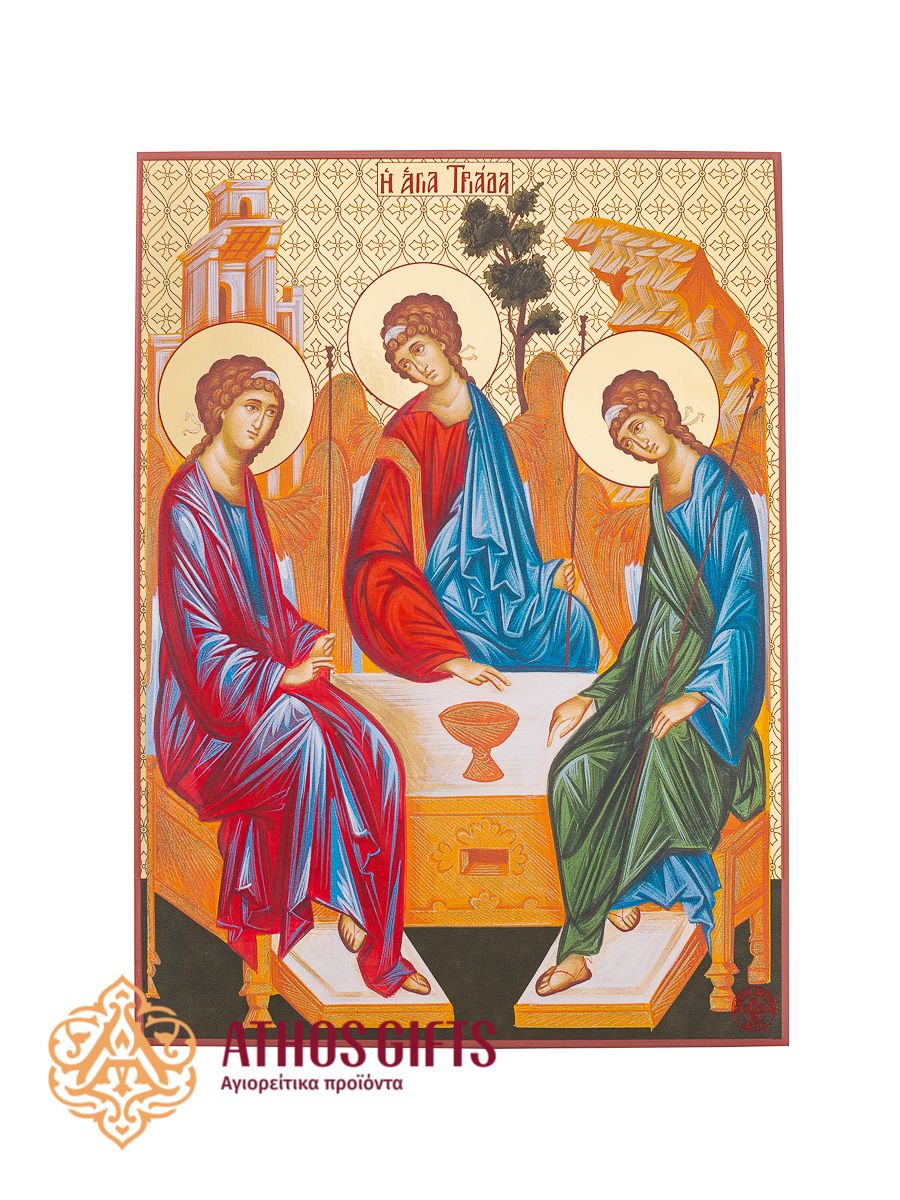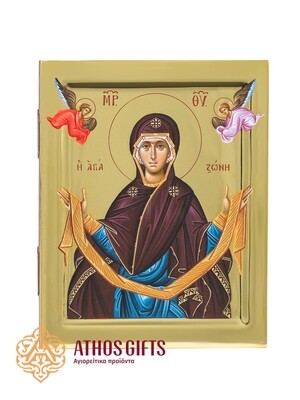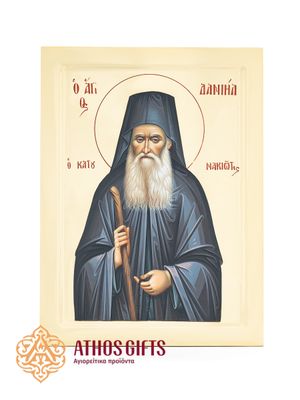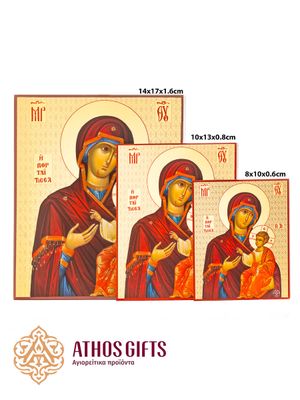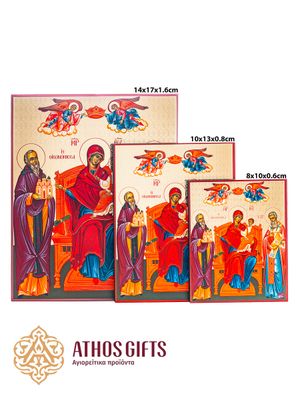Andrei Rublev's Icon of The Holy Trinity
The icon is made on a particle board with the use of the most advanced imprinting and production techniques. The background is decorated in a way that gives the impression of glossy gilding.
Andrei Rublev (c. 1360-1370 - October 17, 1428) is considered the leading Russian iconographer of the Middle Ages. In 1988 he was canonized by the Russian Church as Saint Andrew the Iconographer, and his memory is commemorated on July 4 (17). The accounts of his life that have come down to us are later and unconfirmed. Andrei became a monk at a young age, taking monastic tonsure at the Andronikon Monastery. Rublev presumably died on October 17, 1428 (or January 29, 1430) in Moscow during a time of pestilence.
The icon of the Hospitality of Abraham, or the Holy Trinity, is a masterpiece of Orthodox iconography. Abraham's hospitality is described in the Book of Genesis in the Old Testament (Genesis, ch. 18). According to Genesis, Abraham was sitting near his tent by the oak of Mamre when three wanderers approached him. He hastened to greet the Lord, with cordiality and respect, and offered the guests a meal. During this visit, the wanderers revealed to Abraham that his wife, Sarah, would have a son.
The church saw in this visit three angels, a type of the Holy Trinity.
It is significant that Abraham and Sarah are absent from Rublev's icon, and the iconographer focuses on the three angels. On the table is a chalice, symbolizing the future sacrifice of the Lamb of God. Behind the middle angel is the Tree of Life, which God planted in paradise. Behind the angel on the left are the chambers, symbolizing the image of God's housekeeping. Behind the angel on the right we see a mountain, symbolizing the ascension of the spirit to heaven.
The three figures seem to be in conversation and are in indissoluble unity with one another. Perhaps the topic of their conversation is the imminent coming of the Son of God into the world. Intentionally, it is not mentioned who each Trinity Person is, since the image refers to the concept of the Trinity and not to each person individually.
